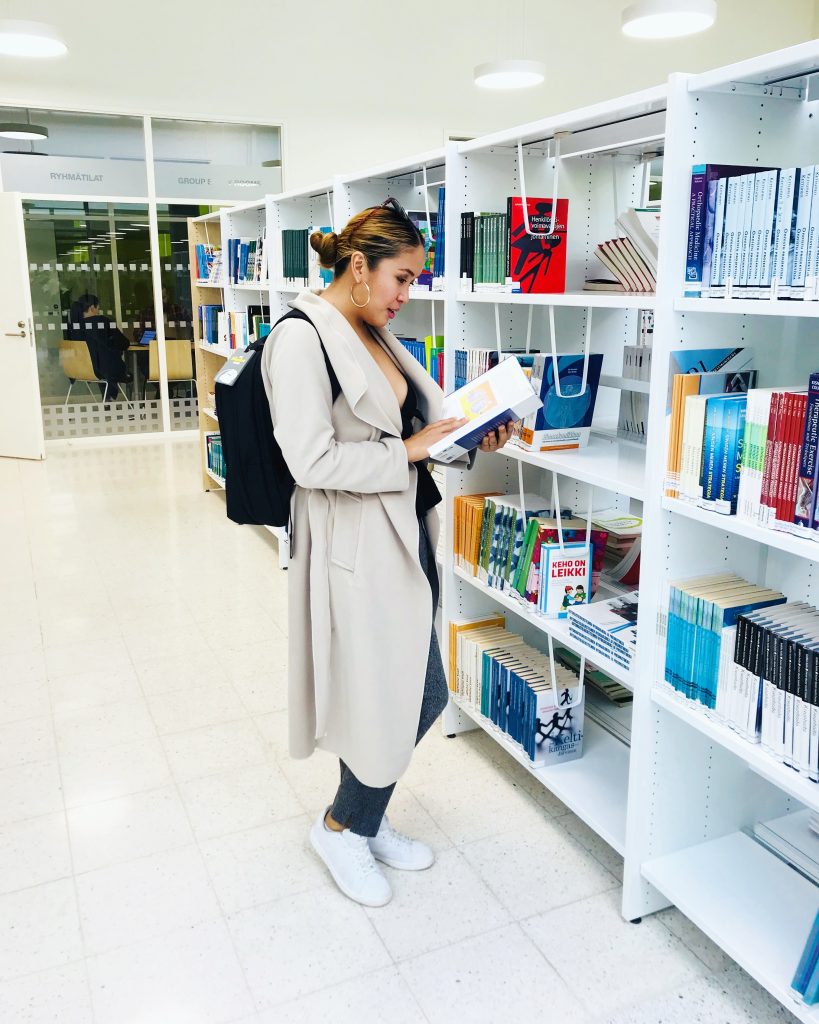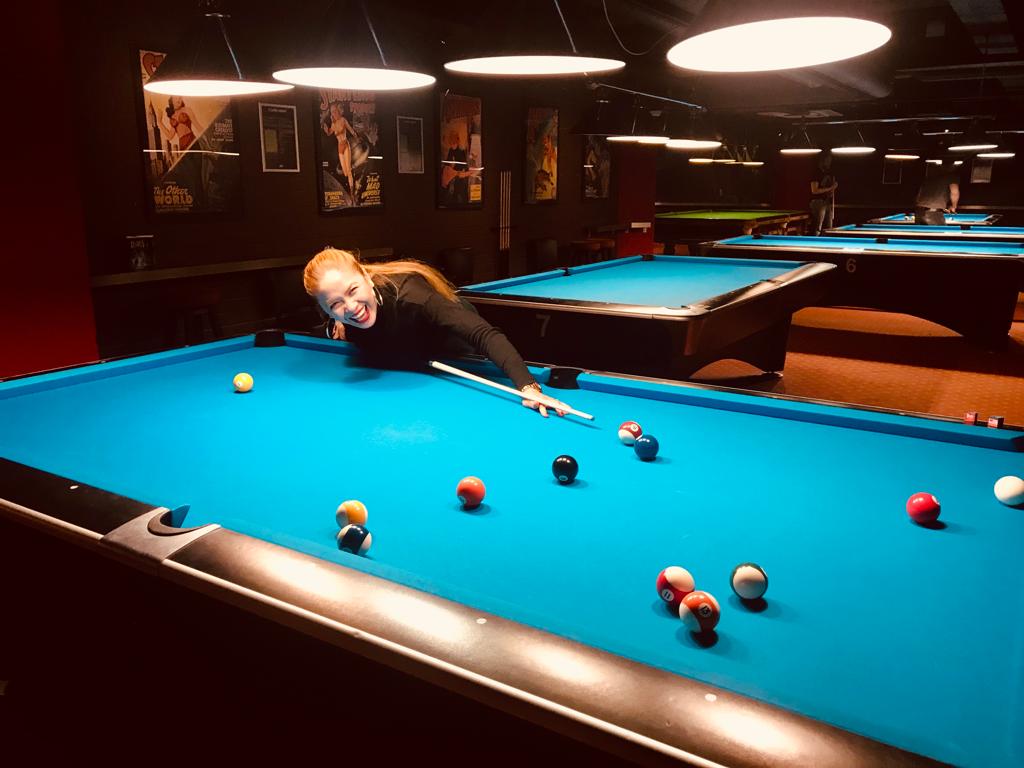
As an international student and SAMK alumni, I’ve learned a thing or two of being a working student here in Finland. If you are thinking of seeking a job while studying, I’d like to share my learnings and experiences with you before you make your decision.
In general, being a working student brings multiple benefits for both to your personal and professional growth. However, you also need to prepare yourself with the disadvantages and sacrifices that come with it.
Let’s take a look into some of the pros and cons of working while studying abroad.
The Pros of being an international working student
You’ll have a sustainable income to support your studies and cost of living (and everything in-between)
You’ll start to establish and build your network in the Finnish market (reference, reference, reference!)
You’ll gain Finnish working experience and strengthen your time and financial management, teamwork, leadership and multicultural skills (among other skills you’ll be able to discover and acquire on your experience).
The Cons of working while studying
You’ll have less free time for other things (depending on your working hours contract)
You’ll get exhausted (to some extent)
You’ll be prone to facing a multitude of stressors.
Are you ready to learn more? Keep on reading.
The Pros of Being an International Working Student
You’ll have a sustainable income to support your studies and the cost of living (and everything in-between)
Bills. Bills. Bills. They never stop coming. Having a sustainable income is an obvious advantage to work, most especially, if you are a paying student. Despite the scholarship programs that SAMK offers, the cost of living in Finland can be really expensive. Luckily, Pori is known to be a student-friendly city, wherein you can find cheaper rental fees.
Plus, who doesn’t want to have a little extra money, right? It can make your university experience even more enjoyable. Having extra money means little freedom to do the things you love. As for me, I enjoy traveling, I do save up to explore different cities around Finland/Europe. How about you? How would you like to spend it?

You’ll start to establish and build your network in Finnish market (reference, reference, reference!)
This is very useful for you as an international talent in Finland. How? I’ll give you a personal experience of mine. My first ever job in Finland was in a cleaning company in Pori (totally not related to my previous working experiences in the Philippines). I’ve worked there for more than two years, and since then, I’ve been fortunate to curve my way back to the hospitality industry. Years later, when the practical training approached, I began sending my internship applications to different hotels. To cut the story short, the hotel manager called my former cleaning manager after my interview. They know each other personally. Small world, isn’t it?

Whether your part-time job is related to your studies or not, my advice is to take the opportunity. It will open many opportunities for you to start networking. Establishing and showcasing your good working ethics in the Finnish working environment is essential. It will benefit you later on in your career. A good character reference helped me jump-start my career in Finland – and so it can for you!
You’ll gain Finnish working experience and strengthen your multicultural competencies (among other competencies you’ll discover and acquire in your experience)

As an international student, by working, you’ll be able to adjust, adapt and learn more about Finnish working culture while studying. It will prepare and equip you with the necessary competencies you’ll need later on. The experience of working in Finland allows you to acquire transferable and valuable competencies such as time and financial management, leadership skills, teamwork, and multicultural skills. Understanding and respecting one’s culture increases team spirit and productivity. It will also give you the growth and confidence to handle things outside your comfort zone.
Even on campus, SAMK will help you strengthen these competencies. You will encounter being in a multi-cultural group to work on your assignments and organize events and collaborations with various companies (within Finland or other European countries). Personally, working in a multi-cultural environment helped me grow as a person and as a professional. Strengthening this skill made me approach a culturally diverse environment with a mindset and actions that lead to many benefits – for myself, my associates, and my employer.
The Cons of Working while Studying
You’ll have less free time for other things (depending on your working hours contract)
As an international student, especially if you are a paying student, your top priority is your degree. If you have an exam, report, or group activities to finish, you need to prioritize spending your free time studying over choosing to go to work.
As a working student, it’s all about balancing and managing your time efficiently. Planning will help you make the most of your free time. In SAMK, the course schedule is published well ahead of time, and usually the employers are flexible in scheduling your work shifts based on your school schedule. I have to say, that’s one of the huge advantages of working and studying here in Finland. Both the professors and the employers are approachable and considerate of your situation.
One of the downsides of working is having less time with your family, friends, and classmates. In some cases, you will miss attending school events and parties. This is why it is so important to create and make friends at work. Making friends at work will make your time pass quickly, and responsibilities become lighter and more fun to carry out.
You’ll get exhausted (to some extent)
You can only perform at your best in your degree and work if you are well-rested and getting enough sleep. Working and studying at the same time has the possibility of draining you out and, eventually, it may harm your studies.
To work and study effectively, here are some of the things you can do:
- Map out your schedule. Write down your work shifts, lectures, seminars, study time, and personal time for yourself or time to socialize with your friends. This way, you’ll be able to visualize your upcoming weeks or months ahead of time.
- If you can visualize your schedule ahead, you will be able to inform your employer. You can ask to lessen/increase your working hours in advance.
- Prioritize your health. Do not take more responsibility than you can handle.

You’ll be prone to facing a multitude of stressors
Being a working student, you will have a multitude of stressors in your personal life, at work, and at school. Being exposed to dealing with various responsibilities, different nationalities, and unfamiliar practices can be overwhelming. Learning to manage your stress is essential for a working student and in life. Don’t worry, I will share with you some of the tips I learned that helped me manage my stress.
- Identifying your stressor(s). Knowing the source of your stress is one key to managing your stress. If you caught yourself struggling at university, take some time to re-evaluate your situation. Does your work have a huge impact that causes your stress?
- Identify your stress relievers. What kind of activities do you like that will help you calm down and de-stress. In SAMK, various activities promote well-being, such as gym, sports, etc. You can check out CampusMoWe for more information. Plus, you may also find it relaxing to go to the swimming hall and enjoy their various pools and saunas!
- Talk to someone. Talk with your family or friends about it. It will help you release some of the pressure. Knowing that you have someone to talk to is very important, not only for your health but also for your mental health. You can also find helpful services that offer this kind of support at SAMK.

With practice, you’ll get better at remaining calm even under pressure. I highly recommend exploring different post-work hobbies such as meditation, yoga, relaxing walks, watching movies, or reading books when things get overwhelming. These activities helped me and will help you calm your mind after a hectic day at school or work.
In the end…
You’ll develop your self-discipline and deepen your self-awareness
Being a working student requires self-discipline and self-awareness. Strengthening these traits will enable you to pause, think, and gain clarity about your current situation. Self-awareness helps you recognize and assess your own emotions before making any decision or reaction.
On the other hand, self-discipline will help you stay focused and keep you on track with your goals. Remember, you will always find yourself being in a stressful situation. Therefore managing and knowing how to handle your thoughts and emotions are important.
I hope you enjoyed reading this blog post and if you start to feel discouraged, remember: Diamonds are made under extreme pressure. You’ve got this!
Text and pictures: Johnnie Mae Väkelä, a recently graduated Bachelor of Hospitality Management


